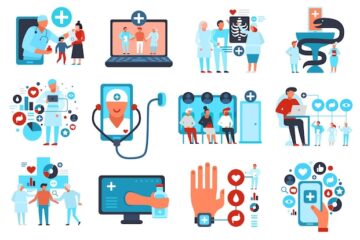The American Medical Association (AMA) has adopted principles to promote the use of “safe and effective” mobile health applications and related devices in clinical care. Although the association acknowledges that the evidence base for mHealth apps is very small, its new policy provides guidance to physicians who have been reluctant to prescribe these apps to patients up to now.
A 2014 survey found that more than a third of doctors were prescribing mHealth apps, but half of those physicians were just suggesting that their patients shop in an app store. Another survey in 2015 found that only 16% of physicians prescribed mHealth apps, according to a report in Medical Economics.
One factor holding many doctors back is the lack of evidence for the safety and efficacy of most apps. Only about 260 studies have been conducted on mHealth apps, and there are roughly 63,000 of them now on the market, according to the publication.
Despite the need for additional studies, the AMA says it believes that mHealth apps and associated devices that support safe and effective care “have the potential to be integrated into everyday practice.”
“The new AMA principles aim to foster the integration of digital health innovations into clinical practice by promoting coverage and payment policies that are contingent upon whether mHealth apps and related devices are evidence-based, validated, interoperable and actionable,” said AMA Immediate Past President Steven J. Stack, MD, in a press release. “It is essential for mHealth apps to support care delivery that is patient-centered, promotes care coordination and facilitates team-based communication.”
According to the policy adopted at the AMA Interim Meeting, physicians should choose mHealth apps that
- Support the establishment or continuation of a valid patient-physician relationship;
- Have a clinical evidence base to ensure mHealth app safety and effectiveness;
- Follow evidence-based practice guidelines to ensure patient safety, quality of care, and positive health outcomes;
- Support care delivery that is patient-centered, promotes care coordination, and facilitates team-based communication; and
- Support data portability and interoperability in order to promote care coordination through medical home and accountable care models.
In addition, the policy continued, prescribers of these apps should
- Abide by state licensure laws, state medical practice laws, and requirements in the state in which the patient receives services facilitated by the app;
- Be licensed in the state where the patient receives services;
- Ensure that the delivery of any services via the app be consistent with state scope of practice laws.
Prescribers of mHealth apps should also pay close attention to patient privacy and data security, the AMA said. Physicians and mobile app developers should educate patients about the varying levels of data privacy and security in mHealth apps.
The AMA also addressed the potential liability of physicians who prescribe these apps. The policy advised doctors to consult with legal counsel if they’re unsure whether mHealth apps meet federal or state privacy and security laws.
However, the association added, “Questions remain regarding liability risks to physicians who use, recommend or prescribe mHealth apps. Accordingly, the AMA will assess the potential liability risks to physicians for using, recommending, or prescribing mHealth apps, including risk under federal and state medical liability, privacy, and security laws.”
The AMA noted that it is partnering with technology companies and start-up incubators to make sure that physician concerns are incorporated into the design of some mHealth apps. Among these partners are Health2047, a San Francisco–based incubator for “health innovation” products in which the AMA invested $15 million. The news release also listed Matter, a Chicago incubator of health technology start-ups; IDEA Labs, a student-run biotechnology incubator; and Omada Health, which is currently working with Intermountain Health Care on an app that addresses issues for people who are considered “prediabetic.”
The AMA is also an advisor to the SMART project, which provides a Web-based graphic user interface for apps that conform to the standards of Fast Health Interoperability Resources (FHIR). A draft HL7 standards framework, FHIR is seen by many as the best hope for improving interoperability between different electronic health records (EHRs) and for connecting EHRs with apps that could expand their capabilities.
[Source:-Medscape]



